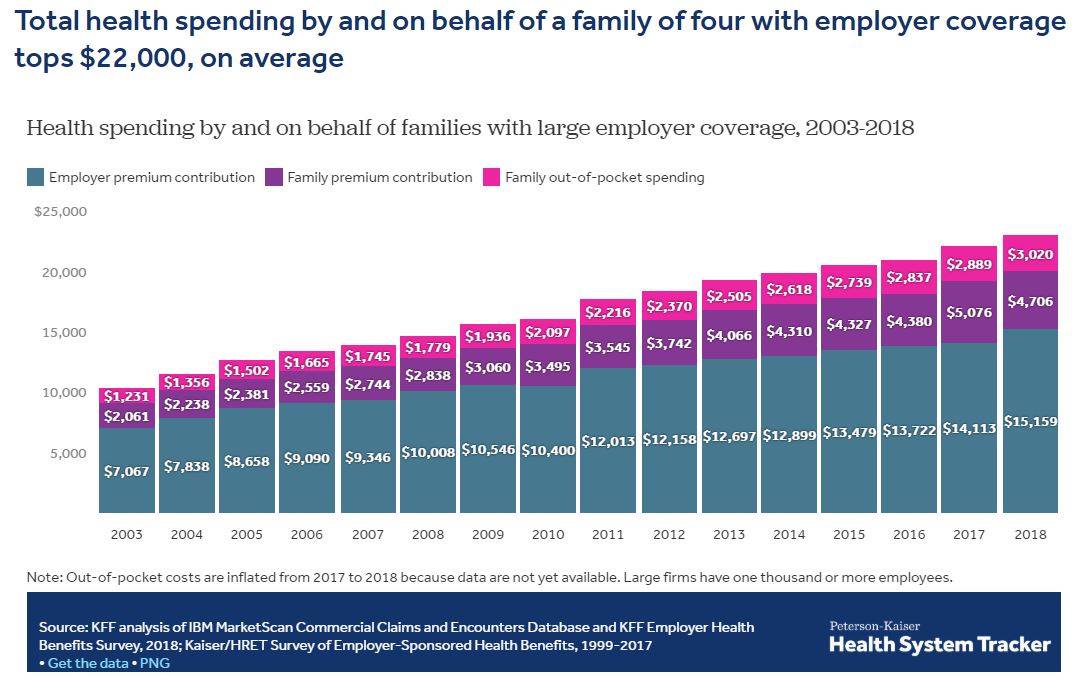So if Americans are spending thousands while on Medicaid, then what's the damage for those with traditional employer-based health insurance?
It depends on a variety of factors, including where you live, the size of your employer and your level of health. Looking broadly, the average American family of four with medical insurance spent about $7,726 on health care last year — roughly $4,706 on premiums and $3,020 on out-of-pocket spending, according to KFF.
On an individual level, however, the costs are actually less. An average, healthy American with insurance making $50,000 a year is paying $2,220 in premiums and out-of-pocket costs, according to KFF. Over half of Americans, 59%, say they paid over $500 for out-of-pocket medical costs in 2018, while 5% say they paid over $1,000, according to a survey from TransUnion Healthcare.
Currently, about 92% of Americans have some form of health insurance, with 55% of those with insurance on an employer-based plan, according to the latest U.S. Census Bureau report. Yet the number of Americans with health insurance dropped for the first time last year, due in part to political efforts to weaken the Affordable Care Act passed in 2010.

Yet experts agree that wages are not keeping pace with the rising costs of health care. "There is growing evidence that cost protections have eroded for those who have employer-sponsored health coverage, putting the burden of health-care costs on workers and their families," says David Blumenthal, president of the health-care policy foundation Commonwealth Fund.
And those health-care costs can skyrocket when faced with unexpected or persistent expenses. One in six Americans say they had a surprise medical bill, despite having insurance. The average out-of-pocket cost for an unexpected out-of-network emergency room visit in 2016 was about $628, while those who were admitted paid an average of $2,040, according to a 2019 study published in JAMA Internal Medicine.
Research from the New York Times, the Commonwealth Fund and the Harvard T.H. Chan School of Public Health found that nearly a third of those who are routinely sick, even though they had medical insurance, still spent all of their savings. In fact, a study released earlier this year found that two-thirds of bankruptcies in the U.S. are tied to medical debts.




